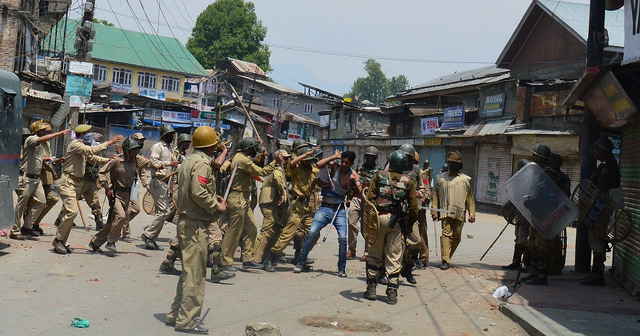IOK one of saddest places in world: report

SRINAGAR (KMS) – In Occupied Kashmir, five-month long military clampdown and internet suspension have added to the already traumatized people of Kashmir as the number of patients with various psychiatric ailments has increased manifold since August 5.
An earlier study carried out by French-based Médecins Sans Frontières, also known as Doctors Without Borders, and Srinagar’s Institute of Mental Health and Neurosciences says that every one out of five people in Kashmir have symptoms of post-traumatic stress disorder.
Dr Arshad Hussain, a psychiatrist who co-authored the study, calls Kashmir one of the saddest places in the world. He found that the situation has escalated as the clampdown coupled with the internet shutdown has added more to the figures of mentally sick patients.
Meanwhile, an atmosphere of fear and uncertainty continues to haunt the Kashmir Valley and Muslim majority areas of Jammu and Ladakh regions on the 142nd day of military siege and lockdown on Tuesday.
Indian forces are deployed in bulk while restrictions are in place under Section 144 to prevent protests against India’s illegal actions taken in the aftermath of August 5. Prepaid mobile phone, text messaging and internet services continue to remain shut in the territory.
Indian police arrested eight youth during raids in Baramulla and Shopian districts. The police arrested five youth from a hotel in Uri area of the Baramulla district. Three youth were arrested during raids on their houses in Waripora and Kutpura areas of Shopian district.
Hurriyat leaders and activists during a meeting expressed condolences over the death of Awami Action Committee’s women wing chief, Fatima Begum in Srinagar. They expressed resentment over India’s decision not to allow Mirwaiz Umar Farooq to participate in her funeral prayers.
APHC AJK leaders Mehmood Ahmad Saghar, Syed Aijaz Rehmani and Pervez Ahmad Shah in their statements denounced the killing of Jamaat-e-Islami occupied Kashmir leader, Ghulam Ahmad Butt, at Allahabad jail in Uttar Pradesh, India.
In New York, Global Rights Watchdog, the Human Rights Watch, has asked the Indian authorities to cease the use of unnecessary lethal force against demonstrators protesting a law that discriminates against Muslims. The Human Rights Watch, in a statement posted on its website, said that since protests against the Citizenship Amendment Act began, at least 25 people have been killed and hundreds arrested.
The rights body urged the Indian government to revoke the controversial Citizenship Amendment Act, which violates India’s international obligations to prevent deprivation of citizenship on the basis of race, color, descent and ethnicity.







